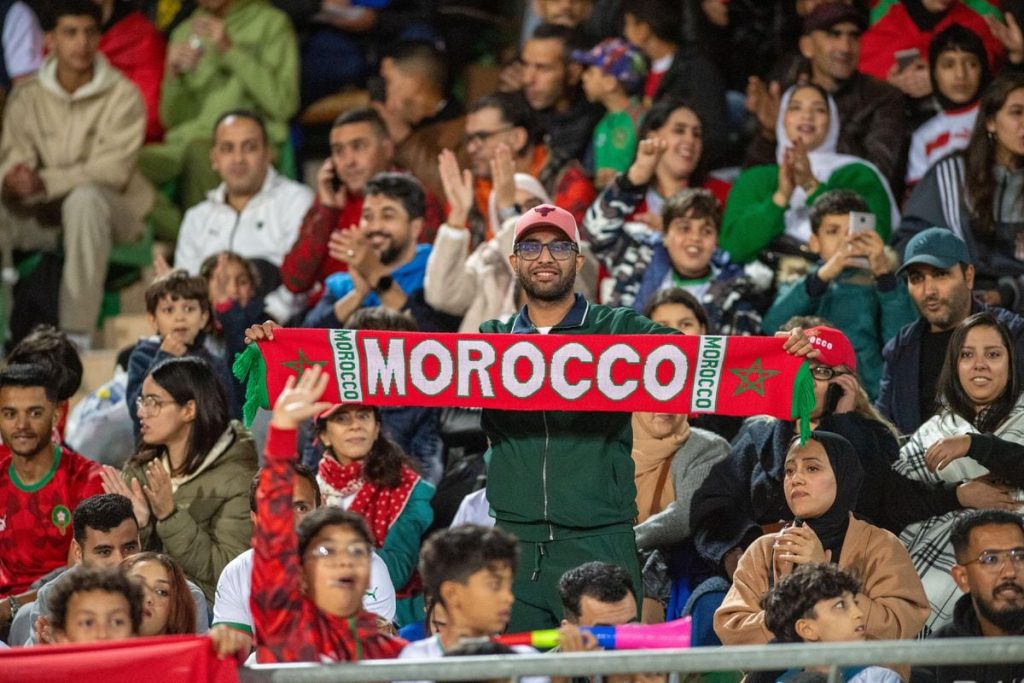Morocco is preparing to host the 2030 World Cup alongside Spain and Portugal, with plans for a new stadium in Casablanca designed by the US firm Populous. The stadium, with a capacity of 115,000 spectators and a budget of 460 million euros, aims to be the largest in the world. Morocco’s ambition to host the final of the 2030 World Cup is further reinforced by the construction of this new stadium, which will also host the two major football teams in Casablanca, Raja and Wydad.
Portugal has voluntarily withdrawn from the race to host the World Cup final. None of the stadiums in Portugal currently meet the FIFA requirements of at least 80,000 seats for hosting the final match. This leaves the competition for the final venue between Morocco and Spain, with the Santiago Bernabéu stadium facing new competition. The new stadium in Casablanca, designed by the team of Populous and Oulalous and Choi, is set to be completed by 2028 and will incorporate traditional Moroccan design elements inspired by social gatherings known as musin.
The stadium in Casablanca is part of a larger plan to construct and renovate stadiums for the 2030 World Cup, with a budget of 1.3 billion euros and including six stadiums in total. Morocco has previously made unsuccessful bids to host the World Cup on its own, but is now joining forces with Spain and Portugal to finally host the event. The president of the Royal Moroccan Football Federation, Fouzi Lekjaa, has expressed the country’s enthusiasm for hosting an extraordinary final that will honor the continent and future generations.
Morocco has already begun preparations for the World Cup by renovating and constructing large sports facilities, with plans to also host the 2025 Africa Cup. The success of the Moroccan national team in the 2022 World Cup in Qatar, where they reached the semifinals for the first time, has further fueled the country’s passion for football. The team’s performance in the World Cup has set a precedent for Arab and African football, with players like Brahim Díaz joining the team to strengthen its roster.
The total cost of organizing the 2030 World Cup is estimated at around 5 billion euros, with half of the funding coming from the Moroccan government. This budget is a fraction of the overall cost of the joint bid with Portugal and Spain. Morocco is also investing in infrastructure development as part of its Vision 2030 plan, including the completion of the first high-speed train line in Africa and the expansion of highways and airports. The country’s efforts to modernize and prepare for the World Cup highlight its commitment to sports and national development.















